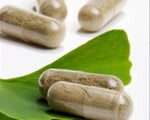Study should babies be given botanical supplements
The use of botanical supplements and teas for infants is a surprisingly common practice but experts warn that such products might not be safe for babies.
By: DoctorNDTV
Edited By:
Updated: May 16, 2011 04:06 IST
3-Min Read

The use of botanical supplements and teas for infants is a surprisingly common practice but experts warn that such products might not be safe for babies.
There are several herbal and botanical products, containing ingredients like chamomile, ginger and fennel that are marketed to ease infant's tummy troubles, fussiness and sleep issues. Nearly 10 percent of babies are given botanical supplements or teas during their first year of life with even babies as young as 1 month old receiving them. There is little evidence that they work and there are also issues on their safety. The increasing number of mothers giving their babies herbal medicines may be caused by the expensive medicines or by the increasing awareness for natural solutions. The wide variety of dietary botanical supplements and teas given to infants increases the likelihood that some are unsafe.
Dietary botanical supplements and herbal teas don't receive the same scrutiny that pharmaceutical products do. Use of such products can cause adverse reactions with other medications, and these products may be inherently unsafe themselves. Some supplements may contain heavy metals or other contaminants, and infants are more susceptible to such toxins. In addition, some dietary supplements have caused seizures and even death in previously healthy infants. One dietary supplement was recalled in 2007 because of microbiological contamination. During the first four to six months of life, child health experts recommend that babies only be fed human breast milk or infant formula.
Reviewing information from the Infant Feeding Practices Study that was conducted from 2005 to 2007, the researchers in America analysed data from 2,653 mothers. Almost 6 percent said they had given their infant a botanical supplement or tea once during the first 12 months of the baby's life. Another 3.6 percent said they'd given their infant these products more than once during the baby's first year. Women were more likely to give their babies these products if they reported using botanical supplements or teas themselves. Women who were older, had more than one child and had a higher education or income were also more likely to give their infants such products. Mothers who breast-fed longer were more apt to try giving a botanical supplement or tea to their baby. Hispanic mothers were more likely than white or black mothers to give their babies dietary botanical supplements or teas. The most commonly used products were gripe water, chamomile, teething tablets and unspecified tea. The most common reasons for giving these products were fussiness, digestion problems, colic and relaxation.
When asked whom they talked to for information about such products, only 27 percent said they talked to a health-care professional. Almost 28 percent got their information from the media, and 30 percent talked to friends and family about botanical supplements and teas for their babies.
Parents have to be extremely cautious when giving their baby any type of supplement or tea, especially when the baby is younger than 4 months old. The baby's brain is growing and developing, and the immune system isn't yet mature, so babies just can't fight things off like adults can. Even things that look benign can be dangerous for babies. Anise is an herbal product that people make tea with. In adults, there may be no reaction, but in babies, anise can cause jitteriness and seizures.
People assume that something's safe if mom or grandma used it, or just because it's natural. In general, experts recommend against giving infants any medications or supplements without talking with your pediatrician first.
DoctorNDTV is the one stop site for all your health needs providing the most credible health information,
health news and tips with expert advice on healthy living, diet plans, informative videos etc. You can get the most relevant and accurate info you need about health problems like
diabetes,
cancer,
pregnancy,
HIV and AIDS,
weight loss and many other lifestyle diseases. We have a panel of over 350 experts who help us develop content by giving their valuable inputs and bringing to us the latest in the world of healthcare.
Was this Article Helpful
Yes or
No
